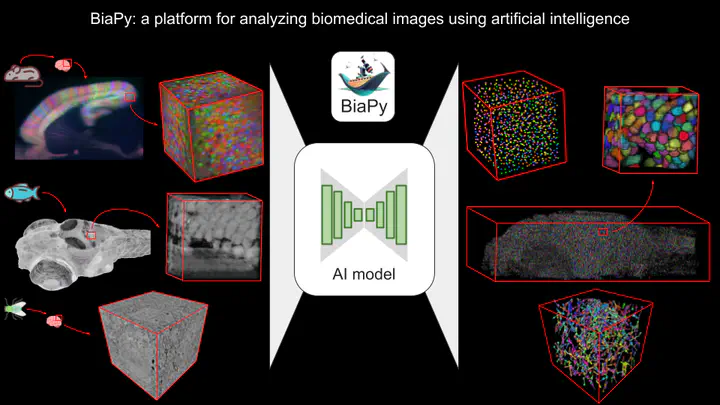BiaPy: An Open AI Platform for Accessible and Scalable Biomedical Image Analysis

Our group, led by Ignacio Arganda-Carreras and in collaboration with Arrate Muñoz-Barrutia, has developed BiaPy—a user-friendly, open-source platform for biomedical image analysis using deep learning, published in Nature Methods.
BiaPy is designed to break the technical barriers of artificial intelligence in bioimaging. It enables researchers and healthcare professionals to apply state-of-the-art deep learning models to microscopy data without requiring advanced programming skills. Built on Python and compatible with multiple computing environments—from personal laptops to GPU servers and cloud platforms—BiaPy is an efficient, scalable, and reproducible solution for 2D and 3D image analysis.
From nucleus detection to 3D tissue reconstruction, BiaPy supports tasks like segmentation, classification, object counting, denoising, and super-resolution. It integrates with the BioImage Model Zoo to reuse and share pre-trained models, making cutting-edge AI directly usable by the wider community.
The tool is already being used in high-profile projects such as:
- CartoCell, in collaboration with the Escudero Lab (IBiS), for uncovering cell organization patterns in epithelial tissues.
- Large-scale 3D neuron detection in full mouse brains using ChroMS microscopy data from the Beaurepaire and Livet labs (École Polytechnique & Institut de la Vision, France).
BiaPy is freely available and committed to open science, reproducibility, and collaboration.
🔗 Project website: http://biapyx.github.io
🔬 Read the article: Nature Methods
📘 Preprint: bioRxiv